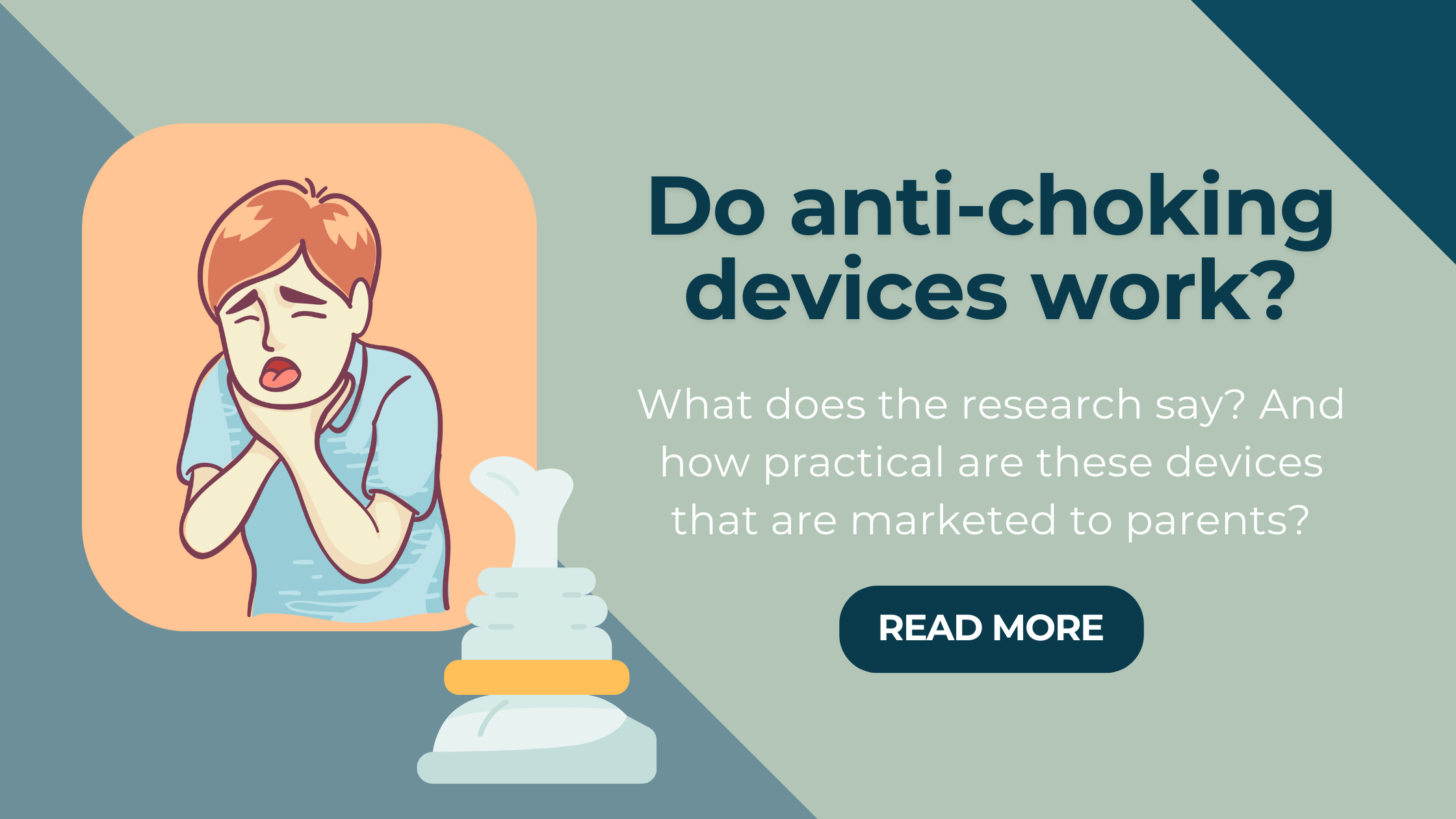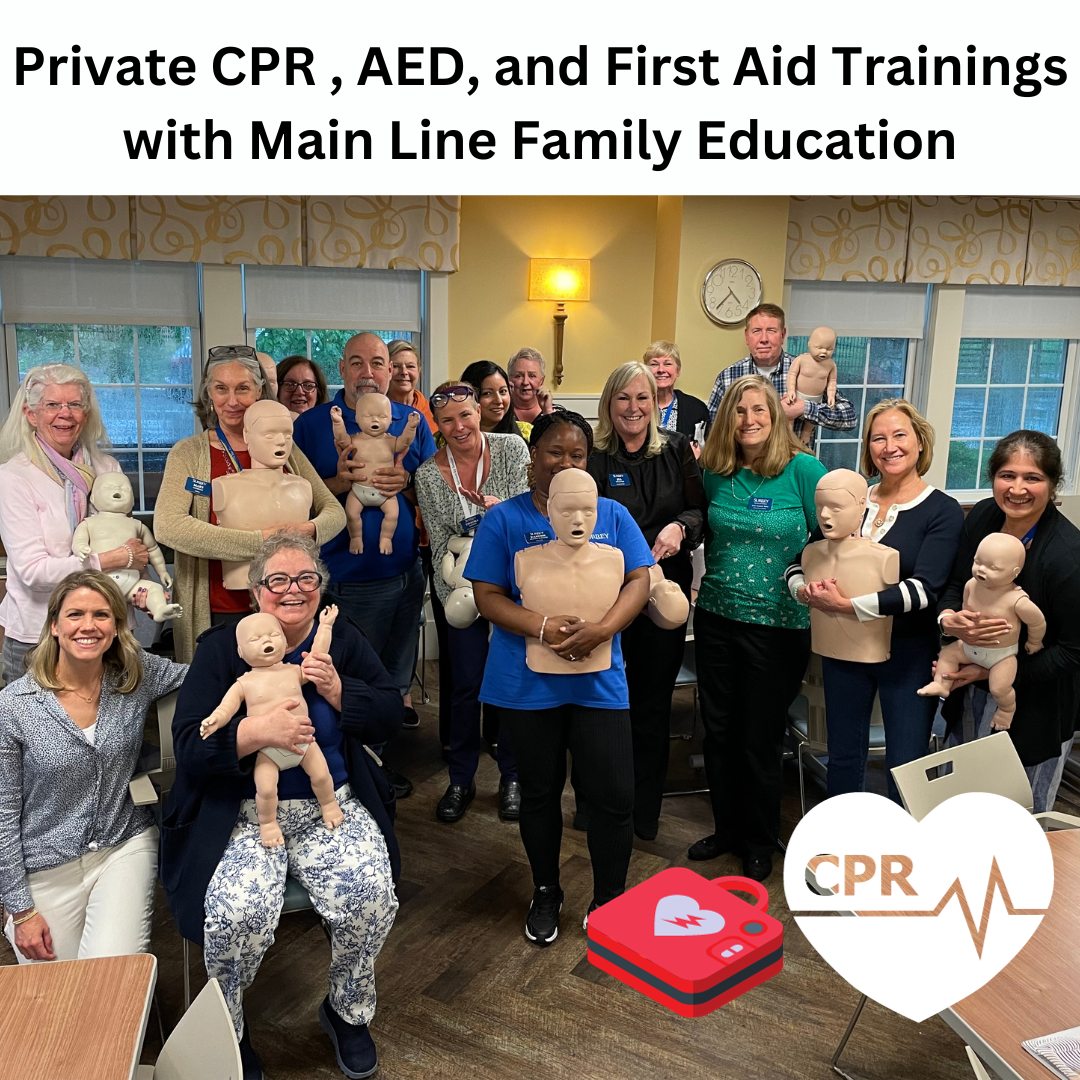Do Anti-Choking Devices Work?

“Do anti-choking devices work?” “Should I buy an anti-choking device?”
As an Infant and Child CPR & Choking instructor here at Main Line Family Education, these questions often come up. Many parents wonder if they should buy an anti-choking device like LifeVac or DeChoker, as almost all of them are being targeted with scary advertisements on social media – myself included!
We do not recommend the use of an anti-choking device. The research is insufficient, and my experience as a parent has shown that knowing how to perform basic choking rescue techniques is crucial. Still, I wanted to look further into the lack of research. What I found was quite shocking.
Anti-choking devices aren’t recommended for those under 12 months old
Not for Babies: These devices are not recommended for children under 12 months or under 22 pounds.1 Babies become more mobile and start eating solids around 6 months, increasing choking risk, yet these devices shouldn’t be used at this age. This is something that really stood out to me when I took a deeper dive into these products.
Many parents likely don’t know this and would rely on a device for their baby that can be more harmful or completely ineffective, creating a false sense of security.1
My thoughts on anti-choking devices as a parent
I love to share personal stories and my experience as a parent of two small children during my classes. I talk about how my toddler is always getting into things, often when we’re away from home. For example, he puts shells in his mouth at the beach, and he routinely tries to eat mulch and acorns during our visits to the park.
I have often asked myself – would I have one of these items on me at those times if he were to choke? No. But I do always have my two hands. And this is what I always tell our parents – you will always have your two hands in an emergency.
Learning how to use your two hands to help an infant, child or adult who is choking is the most important thing that you can do. And jumping into action quickly and effectively without fumbling for a device ensures that you are not wasting precious time. In a choking emergency, every second counts.
What does the research say?
Simply put, there is not enough research out there to support use of these products and they have not been approved by the Food and Drug Administration (FDA).
But most staggering to me as a parent was a small 2023 study that looked at the efficacy of LifeVac and DeChoker. Saltines, grapes, and cashews were placed at the true vocal cords of a fresh cadaver. The DeChoker failed to remove the obstructions in all trials and LifeVac was only successful in removing the barium‐moistened saltines. Both devices applied significant pressure to the tongue.2
Additionally, a systematic review of the research from 2020 found many weaknesses in the limited available data.3 And in April 2024, the FDA issued a safety communication about anti-choking devices.4
The American Heart Association and the American Red Cross do not recommend the use of these products, and the American Academy of Pediatrics (AAP) and the International Liaison Committee on Resuscitation (ILCOR) do not consider these devices the standard of care.4
Learn traditional choking rescue methods
Traditional rescue methods for choking include back blows (for infants under one year of age) and the Heimlich maneuver (for anyone over age one). Both are highly effective when performed correctly. It’s important to learn these skills and to renew your training every two years.
Interestingly, even the founder of LifeVac recommends that traditional rescue methods be used first. This quote really stands out to me: “Lih admits LifeVac may not work in every situation and he recommends you call 911 right away and try traditional rescue methods — like the Heimlich maneuver– first.” 5
The bottom line
Choking is a significant risk for infants and children, and heavily marketed anti-choking devices such as the LifeVac and DeChoker can give well-meaning parents a false sense of security. Learning proven rescue techniques is vital for parents, grandparents, and caregivers – enabling them to act quickly and effectively in an emergency.
References:
- DeLong, O. (2024, February 13). One ER doctor and mom explains if anti-choking devices actually work. BabyCenter. https://www.babycenter.com/health/medicine-and-first-aid/anti-choking-devices_41001722
- Ramaswamy, A., Done, A., Solis, R., Srikanth, M., Olinde, L., & Belafsky, P. (2023). The efficacy of two commercially available devices for airway foreign body relief: A cadaver study. Laryngoscope Investigative Otolaryngology, 8(3), 708–711. https://doi.org/10.1002/lio2.1057
- Dunne, C. L., Peden, A. E., Queiroga, A. C., Gomez Gonzalez, C., Valesco, B., & Szpilman, D. (2020). A systematic review on the effectiveness of anti-choking suction devices and identification of research gaps. Resuscitation, 153, 219-226. https://doi.org/10.1016/j.resuscitation.2020.02.021
- Lashbrook, A. (2023, October 19). What to know before you buy the LifeVac anti-choking device for your baby. Consumer Reports. Updated April 24, 2024. https://www.consumerreports.org/babies-kids/child-safety/what-to-know-buying-lifevac-anti-choking-device-for-baby-a1121348037/
- Polcyn, B. (2018, July 5). A Heimlich alternative? Wisconsin medical experts say anti-choking device needs more testing. FOX 6 Now Milwaukee. https://www.fox6now.com/news/a-heimlich-alternative-wisconsin-medical-experts-say-anti-choking-device-needs-more-testing








